You know how boats usually sail on water, right? Well, what if I told you there’s a boat that can fly over water, like a bird or a plane? Sounds crazy, right? But it’s true.
There’s a company in Sweden called Candela that has created a boat that can “fly” above the water. The boat is called Candela P-12, and it’s an electric vessel that can go faster, quieter, and cleaner than any other boat you’ve ever seen.
How does the flying vessel work?
The Candela P-12 is not a typical boat. It is designed to “fly” above the water using hydrofoils, which are wing-like structures that lift the hull out of the water when the boat reaches a certain speed. This reduces the drag force from the water and allows the boat to consume less energy and travel faster.
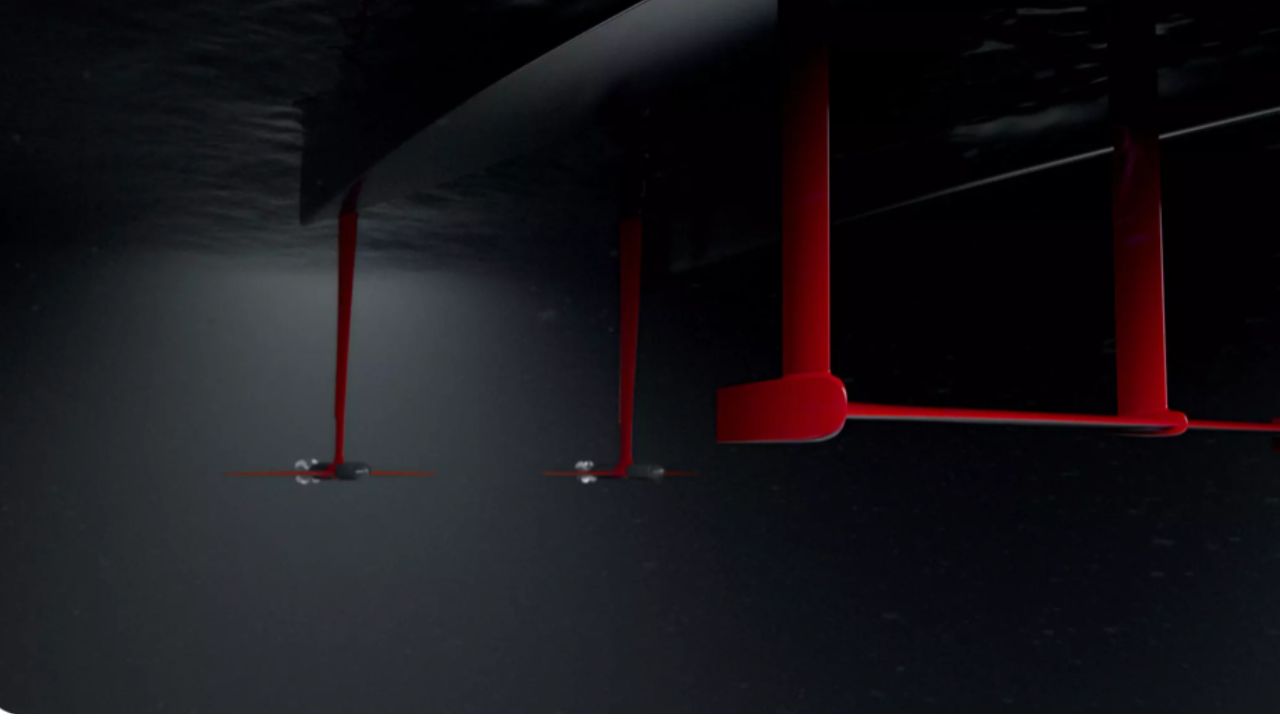
Credit: Candela
MORE: JUST WHEN YOU’VE SEEN IT ALL… FLYING FRUIT-PICKING ROBOTS TAKE FLIGHT
The flying vessel by the numbers
The P-12 can reach speeds of up to 29 miles per hour, which is about twice as fast as a conventional ferry. The P-12 is also powered by a 252 kilowatt/hour battery, which makes it fully electric and emission-free. The battery can last for up to 2.5 hours of operation and can be recharged at any standard dock. The company also made sure to allocate space for bicycles, strollers, and wheelchairs.
There are 3 versions of the P-12, which are designed for public transport fleets, VIP services, or private customers.
- Shuttle: Fast electric commuting (Can carry up to 30 passengers)
- Business: Premium comfort at sea (Can carry up to 20 passengers)
- Voyage: Bespoke interior for unique cases (Can carry up to 12 passengers)
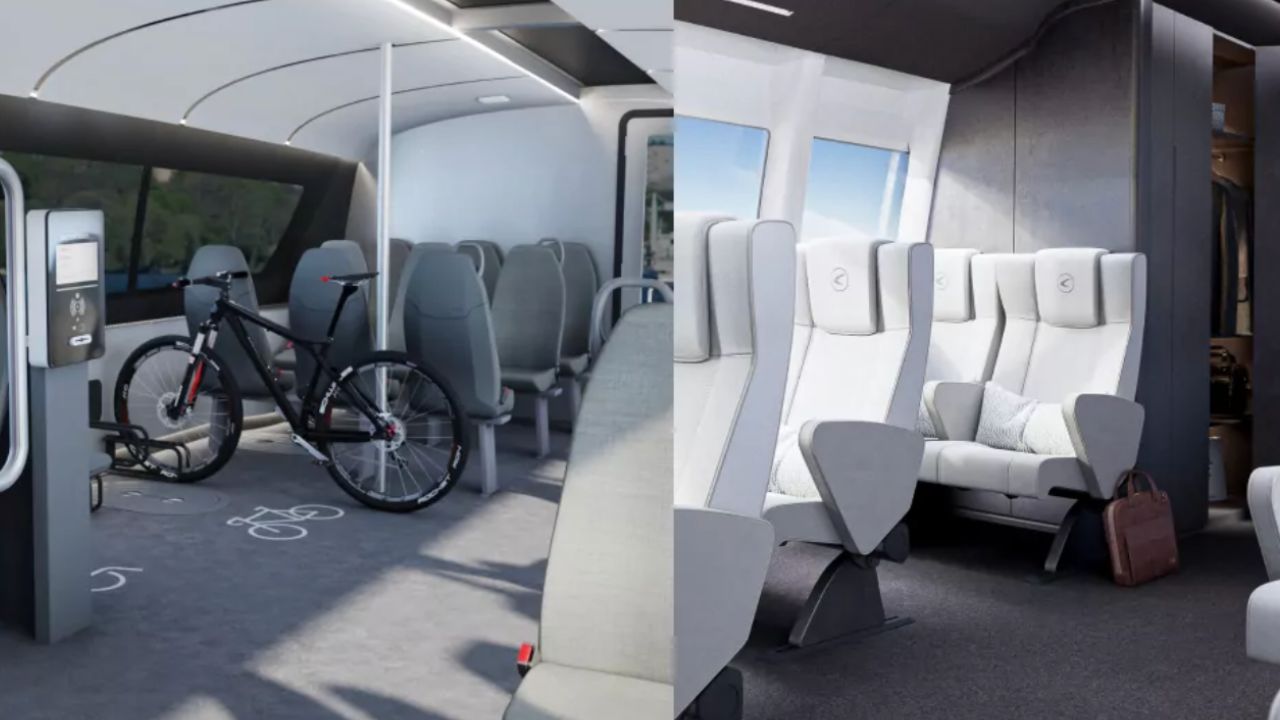
Credit: Candela
MORE: PROOF THAT BEING GOOGLE’S BILLIONAIRE CO-FOUNDER CAN GET YOUR CRAZY AIRSHIP APPROVED
How the vessel flies with style and comfort
The P-12 also features a digital flight control system, which automatically adjusts the hydrofoils to the wave conditions and stabilizes the boat. This makes the ride smoother and more comfortable for the passengers and reduces the likelihood of seasickness. The boat also has a touchscreen interface that allows the driver to monitor and control the boat’s performance and settings.
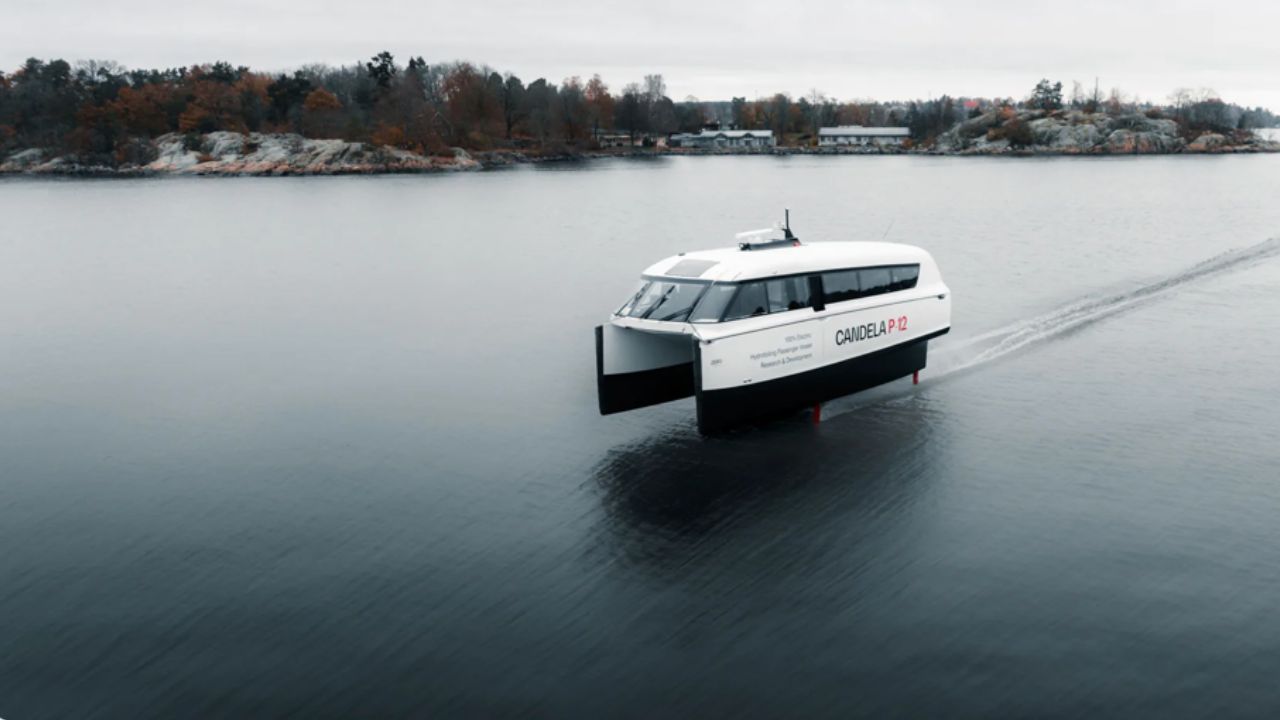
Credit: Candela
MORE: CRAZY FUTURISTIC UNDERWATER JETPACK LETS YOU FLY IN THE WATER LIKE AN AQUATIC SUPERHERO
How did the vessel’s first test flight go?
The P-12 pre-production vessel, named ‘Zero,’ successfully completed its first flight test. The vessel demonstrated its amazing capabilities by lifting off the water at a speed of 16 knots (18 miles per hour) and accelerating to its designed top speed of 30 knots (34 miles per hour) in just 16 seconds.
The vessel flew smoothly and steadily above the water, showing off its sleek and futuristic design. The flight test was a milestone for the company and its vision of creating the world’s first flying electric ship.
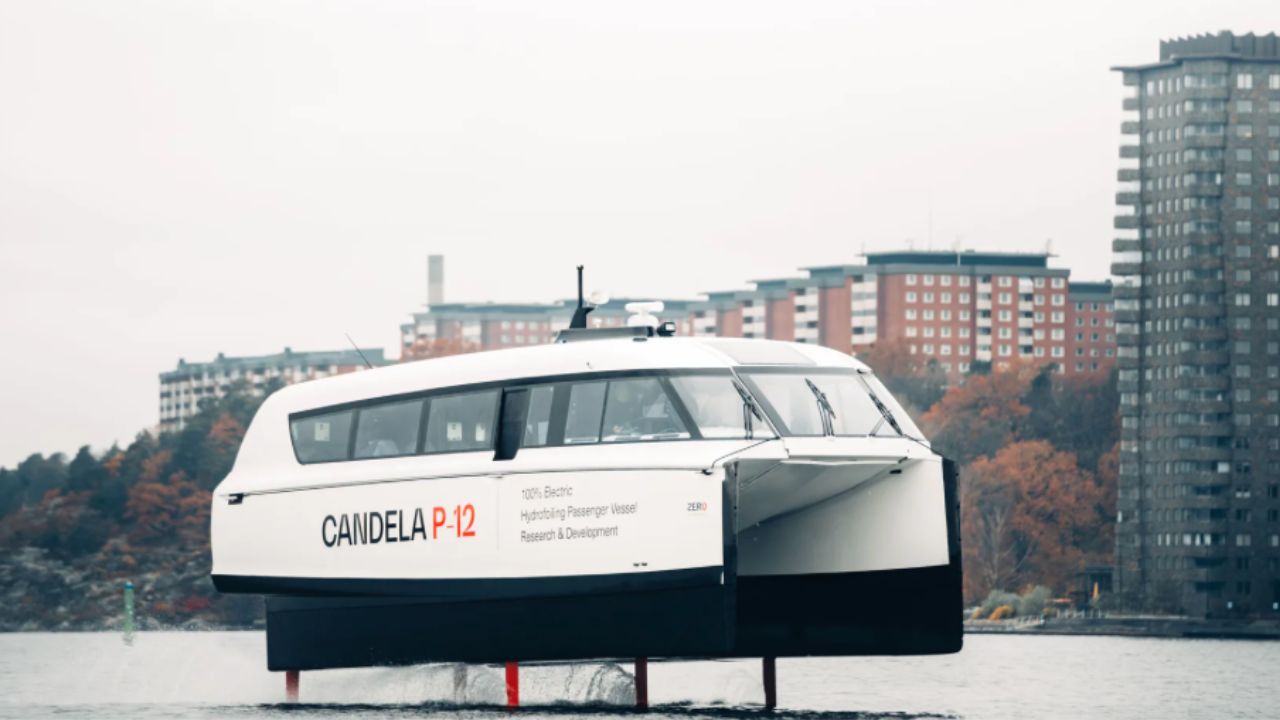
Credit: Candela
MORE: IT’S A BIRD. IT’S A PLANE. NO, IT’S A FLYING JETSKI
When can we see the flying craft in action?
The Candela P-12 is currently entering production and will enter its first voyage in 2024. The company plans to launch the boat in several cities around the world, such as Stockholm, London, New York, and Hong Kong. On its website, Candela’s founder, Gustav Hasselskog, says, “We’re now jump-starting production to keep up with demand.”
The company hopes that the boat will offer a faster, cheaper, and greener alternative to traditional water transport and will help with congested roads and slow commutes.
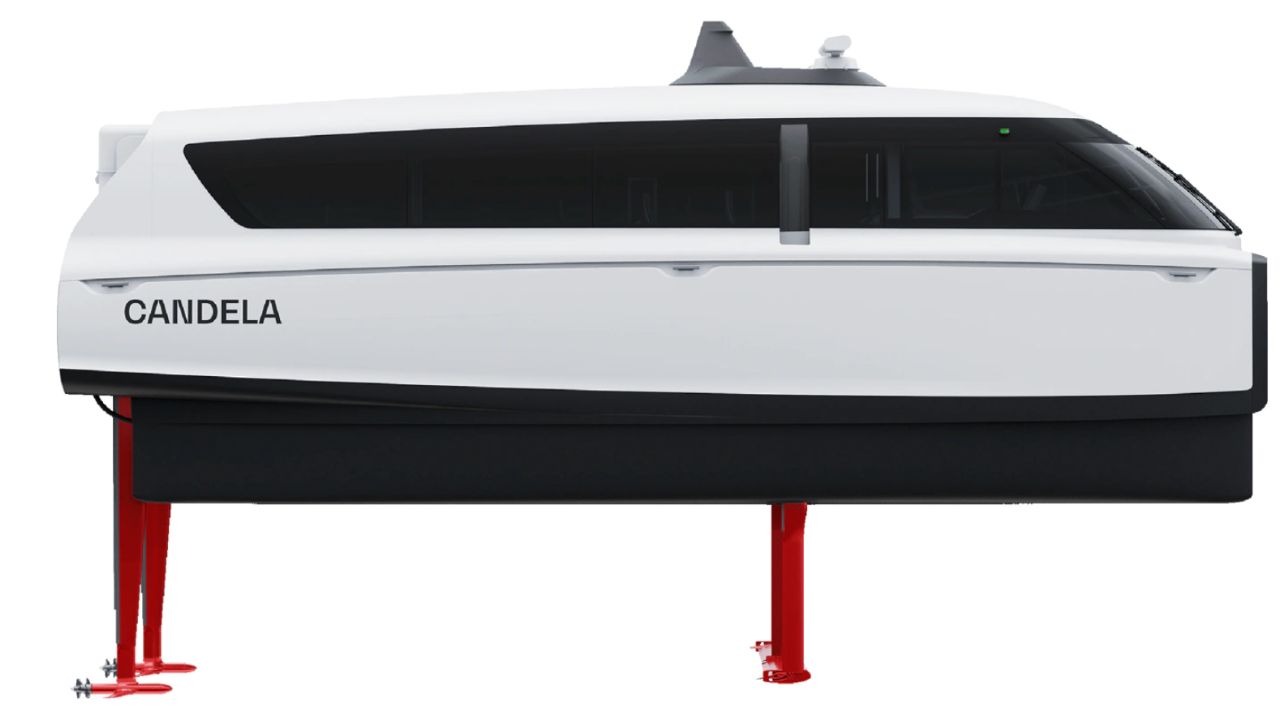
Credit: Candela
The evolution of Candela’s flying boats
You might be surprised to learn that the Candela P-12 is not the first boat that can fly over water. The company behind the P-12, Candela, has been developing and producing flying boats since 2014.
Their first model, the Candela C-7, was a two-seater electric hydrofoil boat that could reach speeds of up to 22 knots (25 miles per hour) and had a range of 50 nautical miles (57 miles). The C-7 was launched in 2018 and won several awards for its innovative design and performance.
The company then created the Candela C-8, a larger and more powerful version of the C-7 that could carry up to eight passengers and had a top speed of 30 knots (34 miles per hour). The C-8 was introduced in 2020 and was the first flying boat to be certified by the European Union Aviation Safety Agency (EASA).
The Candela P-12 is the latest and most advanced model from the company, and it is the first flying boat that is designed for mass transportation and commercial use. The P-12 is the result of years of research and development, and it showcases the company’s vision of making flying boats the future of travel.

Credit: Candela
Kurt’s key takeaways
The Candela P-12 is a remarkable innovation that combines the best of both worlds: the speed and efficiency of flying and the convenience and accessibility of boating. The boat promises to change the way we travel on water and to make our journeys more enjoyable and eco-friendly. The boat also challenges the old prediction that we would have flying cars by now. Well, what about flying boats?
What do you think of the Candela P-12? Would you like to try it out? How do you think it will impact the future of travel and transportation? Share your thoughts and opinions in the comments below. Let us know in the comments below.
TO GET MORE OF MY SECURITY ALERTS, SUBSCRIBE TO MY FREE CYBERGUY REPORT NEWSLETTER


